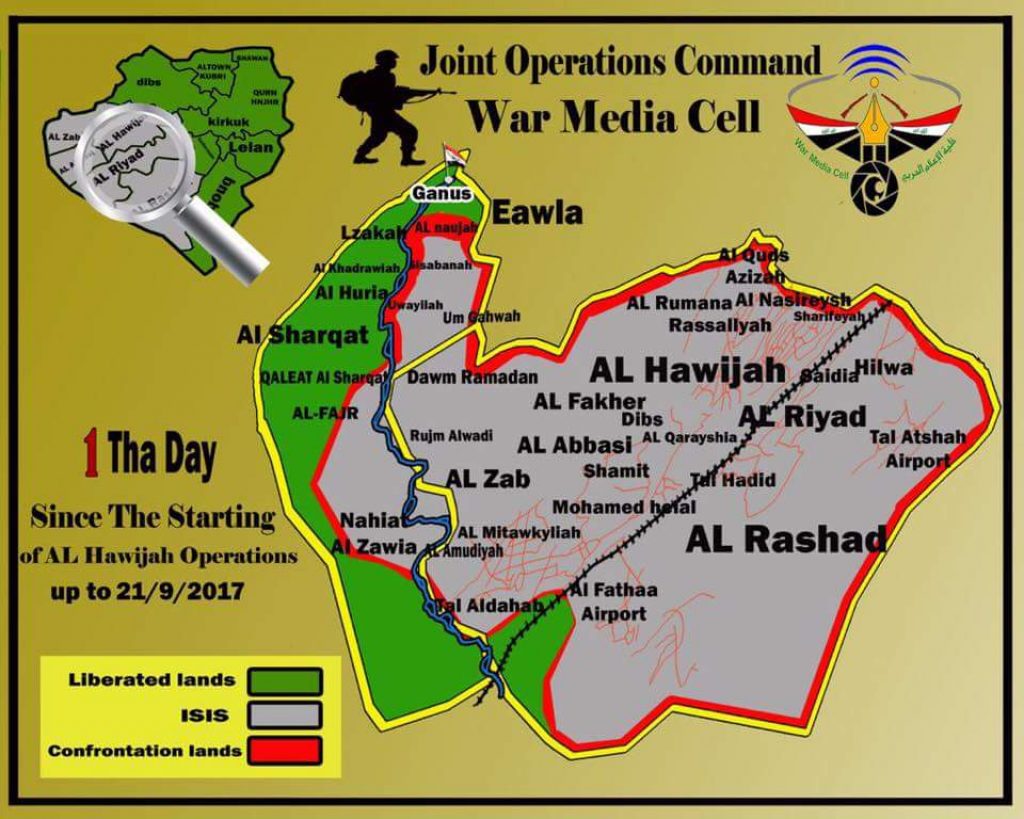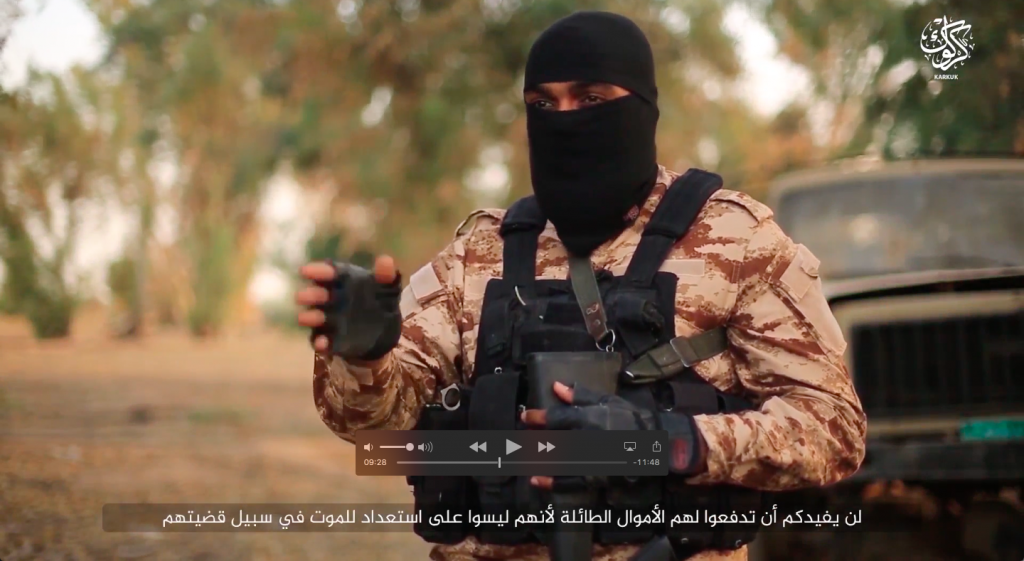
The Iraqi government, backed by the US and other allies, launched a new offensive against the Islamic State in the Hawijah district of Kirkuk province earlier today. The area is considered one of the self-declared caliphate’s two remaining strongholds inside Iraq.
The Hawijah pocket is located south of Mosul between the city of Kirkuk and the Tigris River. The Islamic State has used it as a launching pad for operations in Baiji, Tikrit, and Kirkuk.
Iraqi Prime Minister Haider Al-Abadi announced the operation in a statement online, saying it is the “first stage of the liberation of Hawijah.”
Combined Joint Task Force – Operation Inherent Resolve (CJTF-OIR), which oversees the US-led coalition, also released a statement concerning the initiation of “major combat operations” in the area.
The Islamic State seized control of Hawijah city in “early 2014,” CJTF-OIR noted. But the area “became isolated from the rest of ISIS’ territory in July 2016 during the battle of Mosul,” especially after Shirqat, which lies a short distance to the West, slipped out of the jihadists’ grip.
Iraqi forces quickly claimed success in Hawijah, saying that 20 or more villages were seized during the early hours of the campaign.
As in past battles, the Iraqi forces are a mix of soldiers and militiamen. The Iraqi Army, the Counterterrorism Service (CTS), Federal Police, and the Popular Mobilization Forces (PMF) are all taking part. The PMF advertised its role via its web sites and social media. Its forces are led by Abu Mahdi al Muhandis, a US-designated terrorist who works with Iran’s Islamic Revolutionary Guard Corps (IRGC). The PMF includes Iranian-backed militias that attacked American forces in the past.
There are conflicting reports regarding the role played by the Kurdish Peshmerga, who have long contained the Islamic State east of Hawijah. The Kurdistan Regional Government has scheduled a referendum on Kurdish independence for Sept. 25. The referendum covers the city of Kirkuk and other areas not far from where the battles are currently raging. The Iraqi government rejects the referendum. And the US State Department has strongly objected to it as well, arguing that holding it “in disputed areas is especially de-stabilizing, raising tensions which ISIS and other extremist groups are now seeking to exploit.”

The Islamic State has continued to pump out propaganda from Kirkuk province, even as its forces were surrounded. The group’s media has shifted from a message of triumph in 2014 to one of defiance in 2016-2017. Earlier this month, the so-called caliphate released a video from Kirkuk as part of its “People of Stability” series, which seeks to glorify the jihadi die-hards. It featured an English-speaking jihadist identified as Abu Abdullah al-Muhajir (seen above).
“For a Muslim, trials and tribulations carry great gifts from Allah within them. We’ve been living under siege in Wilayah Kirkuk,” Al-Muhajir said. “Although it seems like hardship for a moment…it is a divine honor from Allah to simulate those who are the first carriers of this message. We are under the embargo similar to the embargo that the Prophet…along with his followers went through in Mecca,” al-Muhajir claimed. “We are under siege just like the Prophet Mohammed and his companions were during the Battle of the Trench.”
Al-Muhajir’s words were a tacit admission that the Islamic State’s days of “remaining and expanding” (its motto during the early months of its caliphate) are over. The group has previously conceded as much on multiple occasions. However, US officials have warned that the organization likely retains enough forces to conduct insurgency operations and terrorist attacks inside Iraq and Syria for the foreseeable future.
On Sept. 19, just two days before the offensive in Hawijah, Iraqi forces stormed some of the Islamic State’s safe havens in Anbar province, on Iraq’s western border with Syria. The town of Anah, near the Syrian border on the Euphrates River, quickly fell to Iraqi forces and tribal fighters.








2 Comments
How long does the American government pretend not to back Kurdish independence. The right of self determination is the right of all people. I assume the Kurds are squirreling away weapons as fast as they can recover them from ISIS. When will the Iraqi Government ask the US to leave yet again?
Iran has already resolved most of what you refer to. When ISIS is defeated and dispersed, the Iranian RGC will instruct the Iraqis to move on the Kurds and push them back to their historically assigned areas.